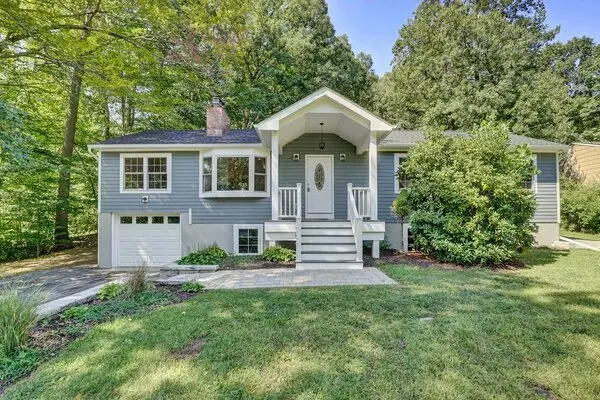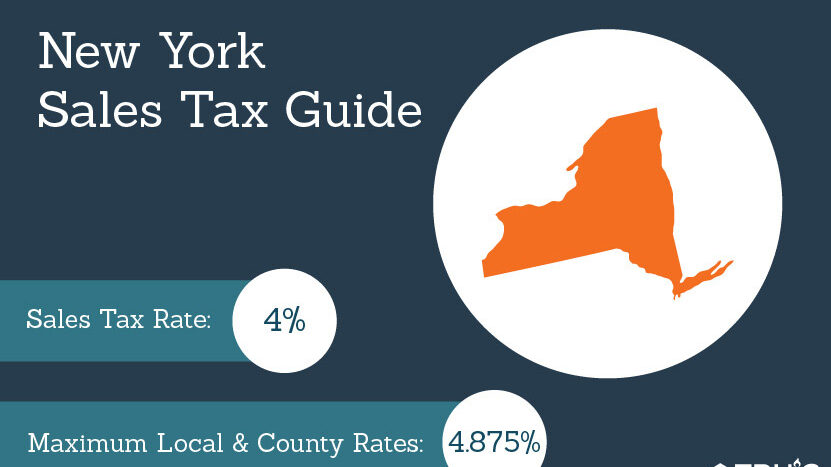Upstate NY Home Sale Taxes: What to Know Before Listing, from realtors near me
Selling your home triggers tax rules the day you list. Good planning can protect tens of thousands of dollars. You do not need a complex plan. You need the right checklist and local guidance.
Colin McDonald has helped Upstate NY homeowners sell with fewer tax surprises and stronger net proceeds. If you want a straight path from list to closing, connect with McDonald Real Estate early in your prep. You will understand your basis, exclusion options, and timing choices before buyers see your home.
Why plan for taxes before you list?

Timing is leverage. Paperwork is proof. Strategy is savings. When you plan before you list, you can:
- Document your cost basis and cut taxable gain.
- Time the closing for the primary residence exclusion.
- Decide on repairs versus capital improvements.
- Price with net proceeds in mind, not just the top line.
- Coordinate a 1031 exchange if the property is an investment.
Meet your CPA early. Speak with realtors near me about market speed, likely closing windows, and buyer incentives that affect your net. Small moves before listing can reduce taxes in large ways.
Common tax misconceptions sellers believe
- My buyer pays the transfer tax. Not always in Upstate NY. Sellers often pay the New York State transfer tax. Check your contract and local custom.
- I can deduct all pre-sale repairs from my taxes. Routine repairs usually do not increase basis. Only capital improvements add to basis.
- The primary residence exclusion wipes all gains. The exclusion has limits. It also has rules on use, ownership, and nonqualified use.
- New York has a special capital gains rate. New York taxes capital gains as ordinary income. Federal law gives preferential long-term rates, New York State does not.
- If I roll profit into a new home, I avoid tax. That rule ended in the late 1990s. Today, exclusions and basis drive results, not rollovers.
- Second homes qualify like primaries. They do not. No exclusion on a pure second home or vacation property.
What taxes and costs might you face when selling in Upstate NY?

Here is a quick overview. Always confirm your details with your advisor and your attorney.
| Item | Where it applies | Typical rate or note | Tax impact |
|---|---|---|---|
| Federal capital gains tax | Gain on sale after exclusions | 0%, 15%, or 20% based on income | Applies to taxable gain |
| Net Investment Income Tax | High earners | 3.8% on net investment income | May apply to home sale gain above exclusion |
| New York State income tax | Residents and nonresidents with NY gain | Progressive rates. Capital gains taxed as ordinary income | Applies to taxable gain |
| NYS transfer tax | Most NY real estate sales | 0.4% of price | Seller usually pays at closing |
| Mansion tax | Residential sales of $1,000,000 or more | 1% in Upstate NY | Buyer usually pays. Affects pricing and net |
| Local transfer taxes | Some counties or cities | Varies | Check local rules and contracts |
| Nonresident estimated tax | Nonresidents selling NY property | Prepayment at closing via NYS forms | Withholding to cover NYS tax on gain |
| Property tax proration | All sales | Split based on closing date | Not income tax, but affects net |
Capital gains tax basics, step by step with realtors near me
Start with the formula. Keep it simple.
- Proceeds. Your contract price minus buyer credits.
- Less selling costs. Commission, attorney, transfer tax, title, recording, staging if part of sale, and marketing.
- Equals amount realized.
- Minus adjusted basis. Your original purchase price plus capital improvements minus depreciation taken or allowed.
- Equals gain or loss.
Example. You bought for $260,000. You added a roof for $12,000 and a deck for $9,000. No depreciation. You sell for $425,000. You pay 6% commission, $2,000 in other closing fees, and $1,700 in NYS transfer tax.
- Proceeds. $425,000.
- Selling costs. $25,500 commission, $2,000 fees, $1,700 transfer tax. Total $29,200.
- Amount realized. $395,800.
- Adjusted basis. $260,000 + $12,000 + $9,000 = $281,000.
- Gain. $114,800.
If this is your primary home and you qualify, the primary residence exclusion can cover the entire $114,800. You would owe no federal capital gains tax. New York State would also tax zero gain.
Can you use the primary residence exclusion?
The exclusion can shield up to $250,000 of gain for single filers. Up to $500,000 for married filing jointly.
Core tests.
- Ownership. You owned the home for at least 2 of the last 5 years before the sale.
- Use. You lived in the home as your main home for at least 2 of the last 5 years.
- Frequency. You did not use the exclusion on another home in the last 2 years.
Special cases.
- Widowed sellers. If your spouse died within 2 years and you have not remarried, you may still use the $500,000 limit when you file as qualifying widow or widower.
- Divorce. You may count time your former spouse used the home as their main home toward your use test if required by divorce decree.
- Partial exclusion. You can claim a partial exclusion if you sell due to work relocation, health, or unforeseen circumstances.
- Nonqualified use. Rental periods after 2008 while you did not occupy the home can reduce the excludable portion. You must allocate gain between qualified and nonqualified use.
Quick example of partial exclusion. You are single. You lived in the home 15 months, then sold due to a job transfer 200 miles away. You meet a safe harbor for work. Your exclusion scales. 15 months out of 24 equals 62.5 percent. Your exclusion limit is 62.5 percent of $250,000, or $156,250.
What about rentals, second homes, and mixed-use properties?

Second homes do not qualify for the primary residence exclusion. Vacation properties do not either.
Rentals and investment property follow different rules.
- 1031 exchange. You can defer gain on investment property by trading into like-kind property. You must follow strict identification and closing deadlines.
- Depreciation recapture. If you took or should have taken depreciation, the IRS taxes that portion up to 25 percent. Recapture applies even if you later convert the rental to a primary home.
- Mixed use. A home with a dedicated office or a two-family property requires allocation. The residential portion may qualify for the exclusion. The business or rental portion does not. Depreciation recapture applies to the business part.
Keep records for all depreciation claimed. If you cannot prove amounts, the IRS can assume you took it. That can raise your tax bill.
Which seller costs reduce your taxable gain?
Two buckets reduce your tax. Costs of sale reduce your amount realized. Capital improvements raise your basis.
Costs of sale that reduce gain
- Real estate commission.
- Attorney fees.
- Transfer taxes and recording fees.
- Title insurance and closing fees.
- Buyer credits paid at closing for repairs or closing costs.
- Staging, photography, and marketing costs directly related to the sale.
Capital improvements that raise basis
- New roof, windows, siding, or HVAC.
- Remodeled kitchen or bath.
- Finishing a basement or adding living space.
- Decks, patios, driveways, fencing.
- Septic replacement or well installation.
- Permanently installed solar or energy systems.
Routine repairs and maintenance usually do not add to basis. Examples are paint, minor fixes, or cleaning. If a repair is part of a larger improvement, it may count toward basis.
Cost basis worksheet you can copy
| Category | Amount | Notes |
|---|---|---|
| Original purchase price | $ | From closing disclosure when you bought |
| Acquisition costs | $ | Title, recording, surveys, transfer tax paid at purchase |
| Capital improvements | $ | Attach receipts with dates |
| Depreciation taken or allowed | $( ) | Home office or rental periods |
| Adjusted basis | $ | Sum of above |
Timing your sale with market and tax factors
Your calendar can add or remove tax exposure. Lock these points first.
- The 2-of-5-year rule. Do not close before you hit your second year if you need the exclusion.
- Capital improvements. Complete and pay for improvements in time to document them. Keep invoices and proof of payment.
- Income thresholds. If your other income will be lower next year, waiting could drop your federal capital gains rate or the 3.8 percent surtax.
- Closing date and property tax cycle. Prorations change net. A closing right after a tax bill post can raise your credit from the buyer.
Market seasonality also affects net price, time on market, and credits. See how season cycles move the Upstate market and plan your timing: Mastering the Market: How Seasonal Cycles Shape Upstate NY Real Estate.
Upstate NY listing-to-closing timing, typical pattern
Spring listings often close in 45 to 60 days. Late fall listings can stretch to 75 to 90 days. Your timeline changes the year you qualify for exclusions and the tax year that reports the sale.
Property tax, STAR, and school tax notes for sellers
Property taxes do not stop at listing. They shape your net. Know these points.
- Prorations. Buyers reimburse you for prepaid taxes. If you owe at closing, the settlement will deduct your share.
- STAR and exemptions. Some credits go to the owner of record on taxable status dates. Buyers and sellers do not usually split exemptions midyear.
- Escrow balances. Your lender sends any escrow surplus back to you after payoff. That refund is not taxable income. It adjusts your cash on hand only.
For a deeper explainer on Upstate property taxes, see Upstate NY Property Taxes Demystified. This helps you plan closing dates, estimate prorations, and avoid surprise bills.
How to avoid surprises with New York State rules with realtors near me
- Nonresidents. New York requires estimated tax at closing for nonresident sellers with taxable gain. Your attorney will prepare the NYS forms and payment.
- Mansion tax. For $1,000,000 or more, expect a 1 percent mansion tax in Upstate NY. It usually falls on the buyer. It can affect demand and price points.
- Transfer tax. The state transfer tax is 0.4 percent. Check if your county or municipality adds more.
- Co-ops and condos. Closing costs and tax allocations can differ. Ask your attorney to break out the details in writing.
When should you consult a financial advisor or realtors near me?
Do it before you choose a list date. Bring your last purchase closing disclosure, receipts for improvements, and last two years of tax returns. This helps model your gain and your tax bracket.
Call your CPA if any of these apply.
- You converted a rental to a primary home.
- You used a home office and claimed depreciation.
- You had a major life event, such as marriage, divorce, or a death in the family.
- Your income swings year to year.
- You are considering an installment sale or seller financing.
Then align your pricing and timeline with your agent. Make sure your strategy fits tax rules, buyer demand, and seasonal patterns.
Step-by-step tax checklist for Upstate NY sellers
- Confirm ownership and use dates. Count exact days to meet the 2-of-5-year tests.
- Build your basis file. Gather purchase documents, permits, invoices, and proof of payment for all improvements.
- List depreciation. Note any rental use or home office deductions by year.
- Estimate gain. Run a draft net sheet with your agent and attorney. Include commission, transfer taxes, and buyer credits.
- Decide on improvements. Choose projects that preserve value and qualify as capital improvements. Skip cosmetic repairs that do not add to basis unless they raise price or speed sale.
- Pick timing. Aim for closing after you meet the 2-year mark if you need the exclusion. Consider your projected income for the sale year.
- Plan for NYS items. Address nonresident estimated tax if needed. Confirm local transfer taxes.
- Organize forms. Keep all closing disclosures, 1099-S forms, and settlement statements.
- Coordinate mortgage payoff and escrow. Ask your lender for a payoff good-through date. Track your escrow refund post-closing.
- File correctly. Report your sale on your federal and state returns. Claim the exclusion if you qualify. Attach supporting forms as required.
Installment sales, credits, and other advanced moves
- Installment sale. You can spread taxable gain over the payment period if you carry a note. Depreciation recapture and some taxes may still be due at closing.
- Energy credits. Qualifying energy improvements may earn credits in the year installed. Keep itemized receipts. Selling does not erase credits you already earned.
- Charitable planning. Some sellers donate appreciated property interests. This is advanced. Use an attorney and a CPA before listing.
- Like-kind exchanges. Investment property only. Do not start without a qualified intermediary in place before closing.
How Colin McDonald supports sellers with tax-smart strategies
Colin starts with your net, not your gross. He reviews likely buyer segments and price bands that reduce credits and concessions. He maps your probable time to contract and time to close. He coordinates closing windows with your 2-year timelines and your income forecasts.
He requests your improvement receipts and creates a simple basis file. He aligns marketing, staging, and contract terms with that file. When buyers ask for credits, he runs the tax impact before you accept. He helps you pick between a price cut and a closing credit based on net tax results. He works with your attorney to verify transfer tax, nonresident estimates if any, and local charges. He pushes for clean terms that protect your net.
If your property has mixed use or recent rental history, he alerts your CPA early. If 1031 is on the table for investment property, he coordinates the timeline to meet identification and closing deadlines. He keeps your sale moving while your tax plan stays intact.
FAQ: Quick answers to common seller tax questions
Do I owe tax if I sell at a loss?
You do not owe capital gains tax on a loss. Losses on personal residences are not deductible.
Are closing costs deductible on my tax return?
Costs of sale usually reduce gain instead of becoming a separate deduction. They lower the amount realized. Track them on your settlement statement.
Can I avoid the 1 percent mansion tax?
The buyer usually pays the mansion tax on residential sales of $1,000,000 or more in Upstate NY. Price points near that threshold may affect negotiations. You cannot avoid the tax by splitting contracts.
Does staging count for taxes?
Staging and marketing costs are selling costs. They reduce gain when paid by the seller as part of the sale.
Do I need to report the sale if I owe no tax?
You may still need to report if you receive a 1099-S or if part of your gain is taxable. Many sellers file to document the exclusion. Keep your records.
What forms do I need at tax time?
Your closing disclosure, 1099-S if issued, and your basis records. Nonresidents use NYS estimated tax forms at closing. Your CPA will list the exact forms.
Are seniors treated differently?
Age does not change the primary residence exclusion. Seniors may have property tax exemptions. Those affect carrying costs, not capital gains rules.
How does a home office affect my sale?
Depreciation you claimed for a home office is subject to recapture. Expect tax on that portion even if the rest of your gain is excluded.
What if I rented the home for a year before selling?
Periods of nonqualified use after 2008 can limit the exclusion. You also may have depreciation recapture from the rental year.
Is my escrow refund taxable?
No. The escrow refund is your own money returned after the loan pays off. It is not income.
Infographic: Your pre-list tax prep at a glance
1. Prove ownership and use. Keep a simple log of move-in and move-out dates.
2. Build your basis binder. Purchase docs. Receipts. Permits. Photos of improvements.
3. Draft your net sheet. Include commission, transfer tax, title, and credits.
4. Time your list date. Meet the 2-year use and ownership tests.
5. Coordinate with your CPA and attorney. Confirm nonresident items and local taxes.
6. Launch with confidence. Market strong. Negotiate with your net in mind.
Putting it all together with realtors near me
Plan early. Keep clean records. Choose timing that fits tax rules and local demand. The right steps protect your profit and reduce stress. Use advisors who measure twice and cut once.
If you want a direct plan from prep to closing with fewer tax surprises, speak with realtors near me and align your dates, documents, and pricing now. For hands-on help across Upstate NY, work with McDonald Real Estate. Colin McDonald will build a sale plan that protects your net and keeps your timeline on track.






